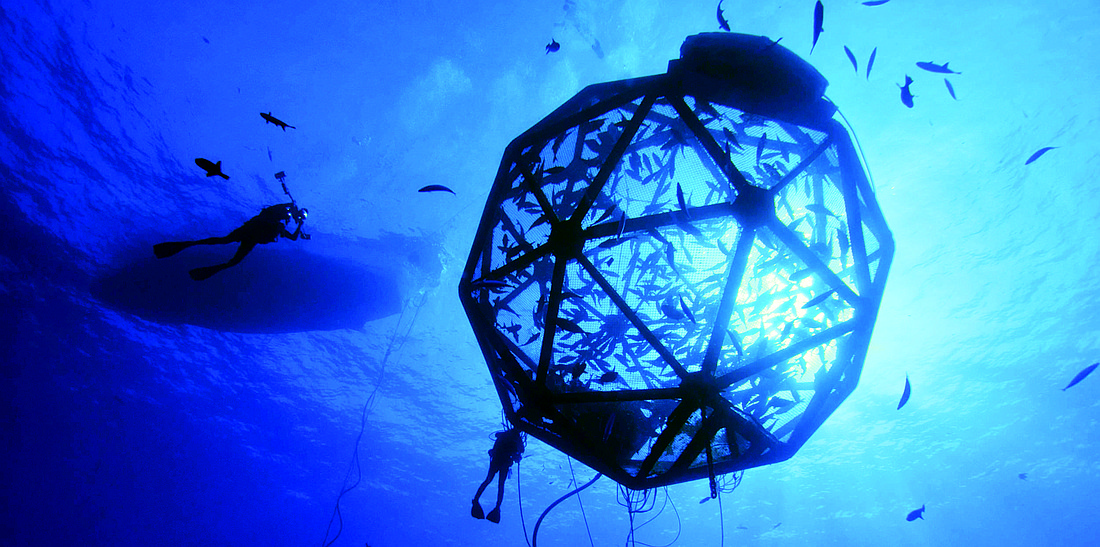- May 20, 2025
-
-
Loading

Loading

For months, residents of Sarasota County have been waiting for another chance to voice their opinions on a proposed fish farm that would be placed in waters 45 miles off the coast of Sarasota.
However, since the Environmental Protection agency held a hearing in January, residents have not had the chance, so local organizations took it into their own hands.
Environmental group Friends of the Earth on Wednesday hosted two virtual hearings so residents could express their opinion on the proposed farm.
Hawaii-based company Ocean Era, formerly known as Kampachi Farms, is seeking approval to host 20,000 almaco jack in a pen suspended in the Gulf of Mexico. To do so, it would need a water discharge permit from the EPA and a construction permit from the U.S. Army Corps of Engineers.
The pen would be placed about 45 miles southwest of Sarasota and produce a maximum harvest of 88,000 pounds. It would be the first finfish project in the Gulf of Mexico and the first in federal waters near the contiguous 48 states.
If approved, Mote Marine Lab & Aquarium will provide Ocean Era with fingerling almaco jack raised at its research park.
However, many local residents fear the pen would only exacerbate problems the Gulf ecosystem has experienced, such as red tide and the Deepwater Horizon oil spill. Others are worried it will open the way for similar farms in the future.
“These facilities have lots of fish contained in the tank,” Friends of the Earth member Hallie Templeton said. “Fish eat and fish produce waste, and that waste goes directly into the waterways. There’s excess feed that can go into the waterway. There’s pharmaceutical residues and other toxins going into the Gulf and this is a big red flag.”
Sarasota Mayor Jen Ahearn-Koch, speaking on behalf of the city, said the discharges that could come as a result of the project are cause for concern.
As part of the permit’s requirements, Ocean Era would have to monitor several factors, such as medicinal products used on the almaco jack and discharges of pollutants including chlorophyll, phosphorus, copper, sulfide and nitrogen.
“Having recently experienced the ecological and economic devastation from red tide, our city is extremely sensitive to the ongoing threat of red tide. “… adding nitrogen and phosphate to our our warm Gulf waters is too risky and too dangerous, even on a trial basis.”
However, during the EPA’s January hearing, Project Manager and Permit Coordinator Dennis Peters said Kampachi selected the Sarasota site out of a list of 18 potential sites because it has the appropriate water, depth, substrate and temperature regimes. It also is away from sensitive reef habitats and endangered species, Peters said.
“Although aquaculture in federal waters is a new industry in [the Gulf], there is already plenty of sound science that shows when net pens are inserted correctly in deeper water farther offshore and when these systems are managed according to well-established practices, there are no significant impacts on water quality, sea form habitats or on the wild fish or other wildlife around the net pens,” Peters said.
Throughout the nation, however, policy makers are looking toward fish farms to boost seafood production, and the federal administration has highlighted the Gulf as one of 10 Aquaculture Opportunity Areas.
However, a federal court in August ruled that under existing policy offshore fish farms cannot be permitted in the Gulf, but several Florida senators, including Marco Rubio, introduced a bill that would change that.
The Advancing the Quality and Understanding of American Aquaculture Act, or AQUAA Act, would establish a national regulatory system for offshore aquaculture.
Still, residents worried that it would be the city and not the company that would have to pay for the risk if the experiment goes wrong.
“Why should local Florida businesses and Florida taxpayers be on the hook for millions of dollars in disaster relief if this fish farm experiment doesn’t work out,” resident Pete Tannen said.
Sean Patton, a candidate for the Sarasota County soil and water board, said he’s against the farm as it stands, but he would be interested to see ecosystem-based farming that would also grow microalgae and other organisms that can help clean the Gulf’s waters.
“If we’re going to start farming in the Gulf of Mexico, we should not do the same thing that’s been shown not to work,” Patton said. “The fact that the company already does some of these high-tech, very good environmental project elsewhere, I think it would be fine to do it here.”